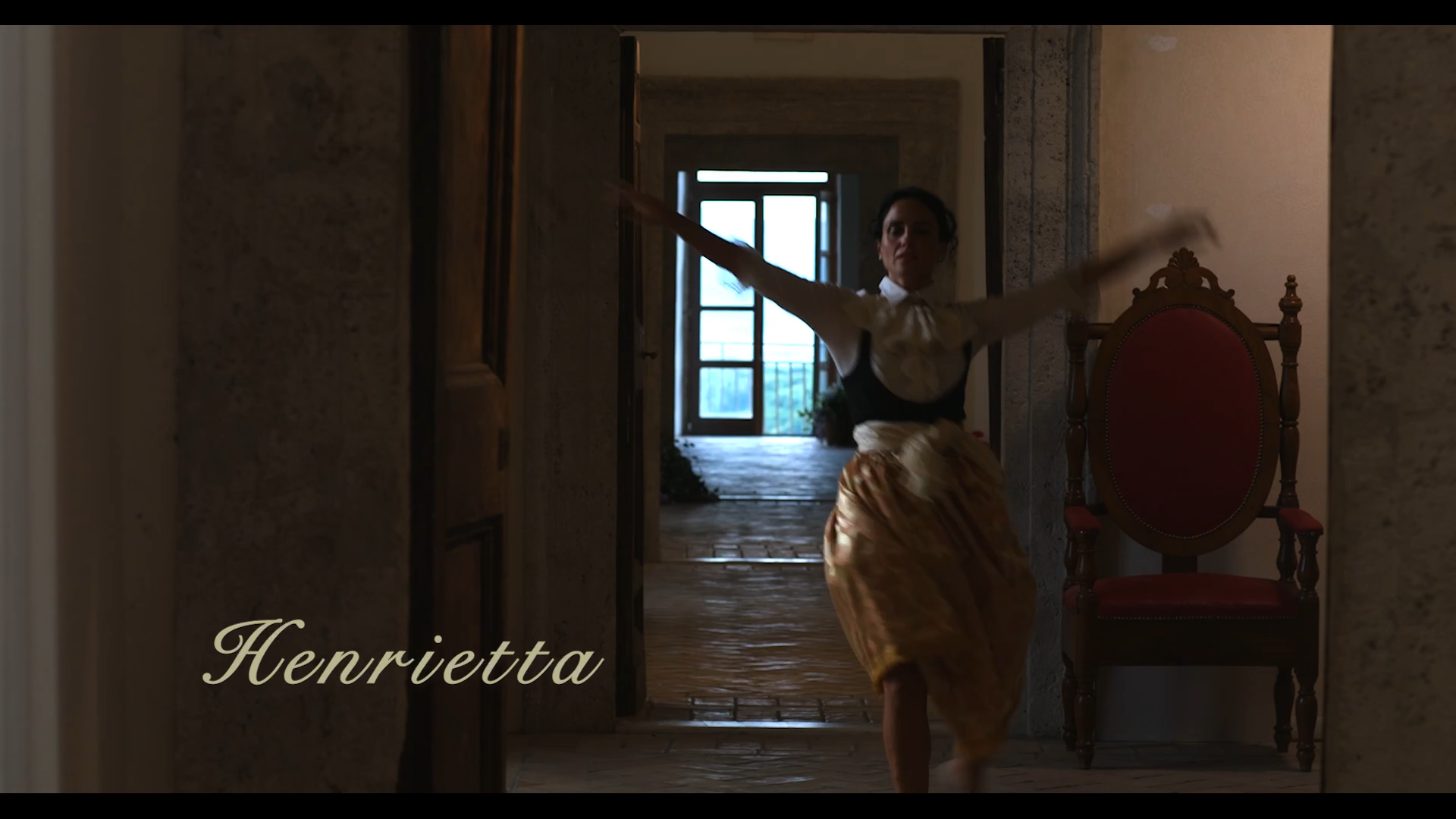A sumptuous feast for the senses
Celebrate Casanova's 300th birthday with a seductive showing.
Allow Casanova and his three women to take you on an exciting journey to one of the composer’s most passionate scores.
In a steamy retelling of the 18th-century tale, Casanova's three lovers rescue him from jail while awakening to their own power and sexuality. The film combines dance and drama without dialogue to a Puccini-inspired cello concerto.
Film Summary
In a mashup of mid-18th century history and fiction, our Casanova story is about three of his women, The Three Graces, from Greek mythology of the film's title. Our story is set in 1755 Venice when Casanova meets up with his lovers Henrietta, Teresa, and Marina.
Those three and other women celebrate at a bacchanalian, Fellini-esque dinner party. Libidos and wine run wild; wigs and inhibitions are tossed in the air. Unfortunately, the police chief, is married to Henrietta, and discovers her betrayal. He doesn't react well. Finding Casanova in the wee hours, he drags him off to Piombi prison, where the jilted husband beats Casanova within an inch of his life. When his lovers find out, they hatch a daring plan to break Casanova out of jail. They dodge gunfire and swordfight but still manage to carry his limp body to a remote cottage.
As he heals, the women escape to their inner worlds through dance. From the rescue, the women realize they, too, have liberated themselves from society's prison and awakened their own strength, power, and sensuality. At the end, the music's repeated crescendos trumpet the group's triumph. Casanova bows to the women's bravery as he departs a changed man. The women have also grown and changed. They bid farewell with a newfound sense of accomplishment and confidence.
Director’s Note
We combined dance and drama in a Puccini-inspired cello concerto to create a dialogue-free feast for the senses. Despite limited funds, we managed to hire talented locals from lesser-known villages in Lazio. Making mid-18th-century costumes with a tiny budget was a miraculous feat. We faced other challenges, including pushing our dancers to become actors when it wasn't their training or ambition, and enduring shoots from dawn to dusk. The result harkens back to the silent film era, when pure visuals drove the narrative. However, in many ways, we're lightyears ahead of that time. It's difficult to categorize this film because there isn't anything remotely like it. We joke that "there are no words," but without the distraction of dialogue, viewers can focus on Italy's stunning countryside, the movement of the dancers' bodies, and the glorious music.
Composer’s Note
CASANOVA is a musical tribute to the great Italian opera composer Giacomo Puccini. I have always wondered why Puccini never wrote an opera based on the scandalous life of his fellow countryman. Puccini’s favorite themes such as love, passion, intrigues and treason are to be found everywhere in Casanova’s memoirs. Puccini’s life consisted of a succession of passionate love affairs, though they do not really match the extravagant adventures of our charming Venetian hero. It would be unfair to characterize Casanova as a mere incorrigible womaniser. His voluminous memoirs written in French, entitled “ History of my Life “ demonstrate he had an extraordinary intellect, that his chameleon-like versatility made him a frequent guest of the Italian aristocracy and several European courts. His fatal flaw may be how he lived for the moment, seizing every opportunity for adventure under the covers or above. He wandered all over Europe taking on both respectable positions as a diplomat, director of the first French Lottery but also dubious ones as a faith-healer and, quite possibly, a spy. He spent the last years of his life in gloomy castle writing his memoirs. Thanks to his incredible memory, he was able to recall even the smallest details of his thrilling adventures and of the tempestuous era in which he lived.
Producer’s Note
The Three Graces, mythological archetypes of femininity, are brought to life in our film through the renderings of three Italian artists—Botticelli, Canova, and Raphael. In our allegory, Casanova's women emerge from Canova's marble sculpture, liberated from the weight of social expectations. Through Caravaggio-inspired lighting and expressionistic image layering, we amplify the inner world of our characters, immersing the audience into the private dimension of feminine sensuality. In a world where women are still marginalized and oppressed, The Three Graces stand as an example of possibility. Through their courage and determination, they show that it is possible to break free from the constraints of expectation and embrace one's own sexuality as a source of strength and power. Their journey forever changed the course of their own lives, as well as the lives of others who are brave enough to follow in their wake.
The film, Casanova and the Three Graces, had its Dutch premier with live wind orchestra and cello soloist April 2024 under the baton of Conductor Björn Bus, the artistic director of the World Music Contest in Kerkrade, Holland. Björn Bus conducted the Harmonie St. Josef Kaalheide. Johan van Lersel, the acting solo cellist for the Royal Concertgebouw Orchestra, was cellist. Conductor Björn Bus notes, “New technology aiding this film premiere provided a deeper and richer concert experience." A signature of Björn Bus's work is to add another creative facet to his performances. The film Casanova and the Three Graces met this requirement perfectly. "Of course, the music speaks for itself," Björn Bus said, "but the average audience can appreciate it more when there is an extra layer of images, dance or art."























